A majority of Belizeans approved the proposition to settle the long-standing territorial dispute between Belize and Guatemala at the International Court of Justice (ICJ) after they voted ‘YES’ at a national referendum held on Wednesday, May 8th. The nationwide election saw 65% of the 148,500 re-registered electorates participating. The official reports from the Elections and Boundaries Department indicate that at the end of the voting process, 55% of the population voted ‘YES,’ while 44% voted against settling the Guatemalan claim to Belize at the ICJ.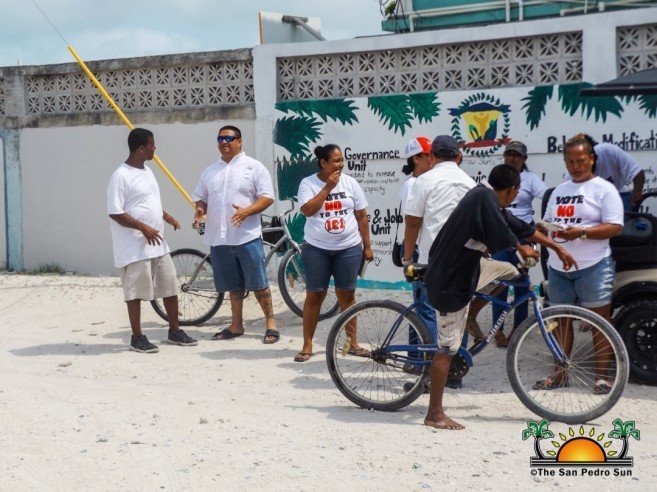
All 344 polls nationwide opened at 7AM, and the machinery from both the ruling United Democratic Party (UDP) and the Opposition People’s United Party (PUP) was busy throughout the day, encouraging citizens to come out and vote. The election process proceeded without incident, and the steady flow of voters reached its peak in the afternoon and near closing time. As the last group of persons made it to the polling areas, the gates closed at 6PM. After the last person cast their vote, the counting began. Three hours into the counting of the ballots, unofficial reports saw the ‘YES’ vote leading across the country. The Belize District dominated the elections with 69% participation, while the Toledo District in southern Belize registered the lowest turnout with 59%.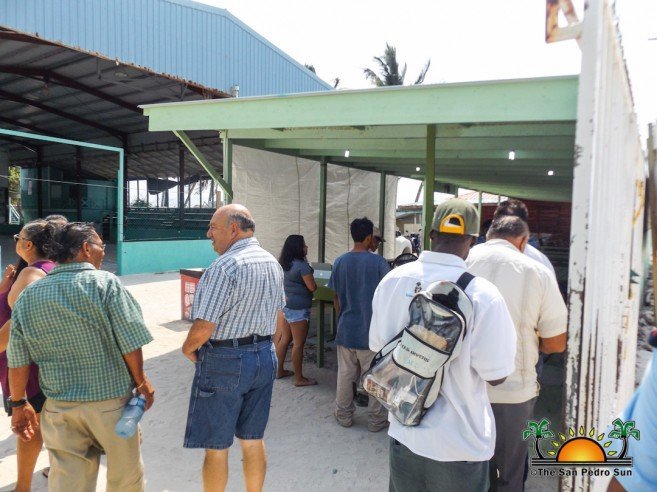
Early on Thursday, May 9th, Chief Elections Officer Josephine Tamai released the official results after compiling all the votes from the 31 constituencies across the country. Tamai indicated that a total of 96,417 eligible voters participated in the ICJ referendum. The statistics that gave the ‘Yes’ vote the advantage show that 53,388 voted in favor of the ICJ, while 43,029 voted ‘No.’ Nine constituencies voted against the ICJ: Toledo West, Toledo East, Cayo West, Cayo North, Orange Walk North, Orange Walk Central, Corozal South East, Corozal Bay, and Lake Independence. The highest ‘NO’ vote was registered in Cayo North with a total of 2,172. The highest ‘Yes’ vote came from the Belmopan constituency with 2,692 votes.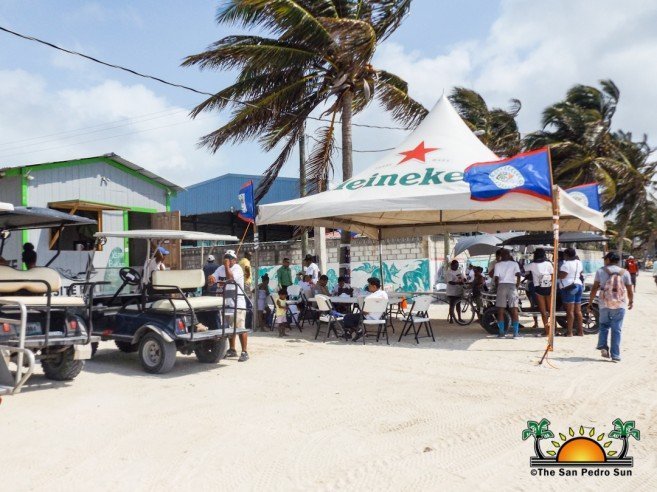
In Belize Rural South (BRS) (Ambergris Caye, Caye Caulker, and St. George’s Caye) the decision was a sound ‘YES’ with 2,373 in favor and 1,857 ‘NO’ votes. Presiding Returning Officer Martin Alegria stated that the process was smooth and peaceful. He was satisfied with how the elections were held on the islands and said that there were no disputes during the counting process. 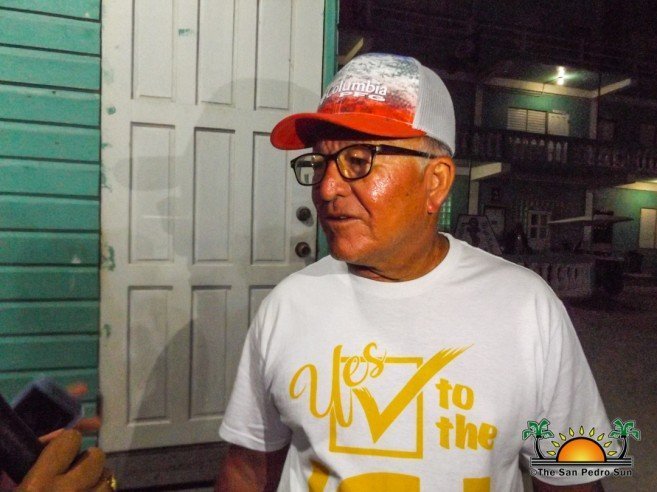 BRS Area Representative, Honourable Manuel Heredia Jr., said that he was proud of the turnout. “Everyone wants to end this dispute, and today the people spoke and decided to get over with it and move on as a country,” said Heredia. Many of the electorates that spoke to The San Pedro Sun shared mixed emotions. While some said that they do not need a third party or court to tell them that Belize is their country, others stated that if we do not take advantage of this opportunity to end this dispute, perhaps there will not be another one in the future and relations with Guatemala could become hostile.
BRS Area Representative, Honourable Manuel Heredia Jr., said that he was proud of the turnout. “Everyone wants to end this dispute, and today the people spoke and decided to get over with it and move on as a country,” said Heredia. Many of the electorates that spoke to The San Pedro Sun shared mixed emotions. While some said that they do not need a third party or court to tell them that Belize is their country, others stated that if we do not take advantage of this opportunity to end this dispute, perhaps there will not be another one in the future and relations with Guatemala could become hostile.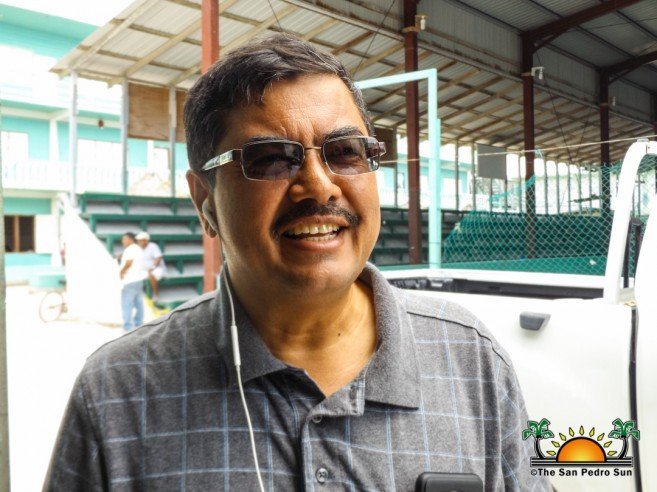
The voting process was overseen by representatives of the UDP, the PUP, members of the Diplomatic Corp accredited in Belize and election observation missions from the Caribbean Community-CARICOM, and the Commonwealth. Select members from the Belize Tourism Industry Association (BTIA) were invited to participate as well. Most of these observers monitored the elections throughout the country, and one San Pedro BTIA member participated in Ambergris Caye. Alegria does not recall seeing any representatives from the international mission’s monitoring Ambergris Caye or Caye Caulker.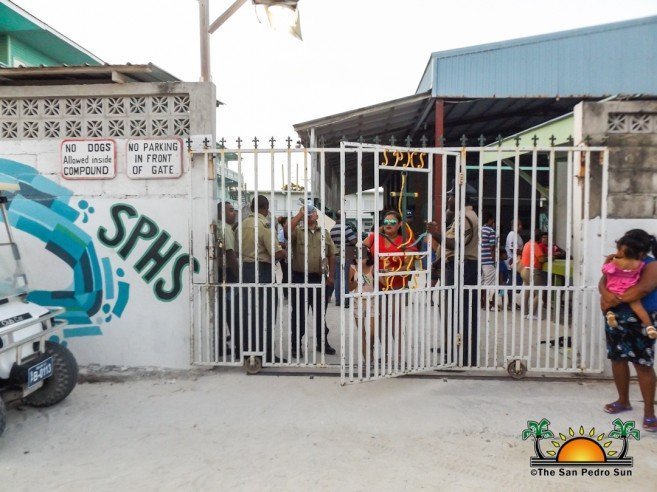
After the results were made official and it was confirmed that the ‘Yes’ vote prevailed, Belize began receiving overwhelming recognition from the international community. The Embassy of the United States of America in Belize congratulated Belizeans for the successful referendum. ‘By referring the matter to the International Court of Justice, the country has chosen to move forward in the peaceful, final resolution of this dispute. That resolution will be good for the people of Belize, the people of Guatemala, the people of Central America, and ultimately the people of our entire hemisphere. It will open the way to increased trade, travel, and better cooperation on everything from fighting drug-trafficking to social development to preserving the environment,’ read a section of the congratulatory note.
The United Kingdom welcomed the results of the referendum, and via the British High Commission in Belize congratulated the Belizean people. The official note stated that the British Government supports this process as the route agreed jointly by Belize and Guatemala. They believe that legal certainty between both countries will boost peace, investment and social development for today’s and future generations to come.
The government of Guatemala also congratulated Belize on this achievement and via a press release from its Ministry of Foreign Affairs stated that they were happy with the positive result from the referendum. The release noted that the resolution of the territorial dispute would enhance the good relations between Belize and Guatemala. The Guatemalan Foreign Ministry also announced that they would immediately be in touch with Belize’s Ministry of Foreign Affairs by the Special Agreement signed in 2008, which paved the way to the ICJ. Guatemala’s former Foreign Minister Carlos Raul Morales also congratulated Belize on the success of the referendum. He wrote that Guatemala and Belize now can now peacefully resolve the issue and come to a definitive solution at the ICJ.
Prime Minister Right Honourable Dean Barrow held a press conference on Thursday, May 9th in Belize City. He thanked Belizeans for voting in favor to go to the ICJ. He also acknowledged members of the PUP as they also played a role in moving the way forward during the election process. Barrow indicated that Belizeans moved in a united manner and this is the attitude they should keep towards this issue of national interest.
The ICJ Referendum was initially slated for April 10, 2019, but it was postponed after Chief Justice Kenneth Benjamin granted an interim injunction sought by the PUP. The allegation was that the UDP government had to debate the idea of holding a referendum through the House of Representatives and the Senate before it could be approved. The government followed this petition and introduced the Belize Territorial Dispute Referendum Bill 2019, which was debated in House on April 12, 2019, and on April 15, 2019, in the Senate. At the end of both debates, the Bill was approved and went to the Governor General’s desk for his signature. With the Governor General’s assent, the Bill became law and the referendum was then allowed to be conducted on May 8, 2019.
What’s the process?
The process to submit the case to the ICJ is almost immediate, and Guatemala is first to make her presentations before the court. Belize will then need to dispute such evidence/allegations by Guatemala on her alleged rights to Belizean territory. This process in the court could take up to five years, but when the 15 ICJ judges digest all evidence from both parties, an additional nine months will be needed to come up with a verdict. Afterward, a first draft of the court’s decision is delivered. If there are objections, the draft is reviewed once more, and after a couple of weeks, is read again. If there are no objections, a second reading of the draft is presented before the court with the final decision by the judges. The ICJ verdict is final and cannot be repealed. However, the court cannot enforce its judgment.
The anticipated election process in Belize was the second phase of the route to the ICJ. Guatemala held their referendum on April 15, 2018, and despite having a low turnout of 26%, a large majority of the votes approved settling the dispute at the ICJ. With the ‘YES’ vote in Belize winning, the country is now mandated to resolve the centennial claim from Guatemala at the ICJ.
Belizeans agree to settle the Guatemalan claim to Belize at the International Court of Justice

Share
Read more

